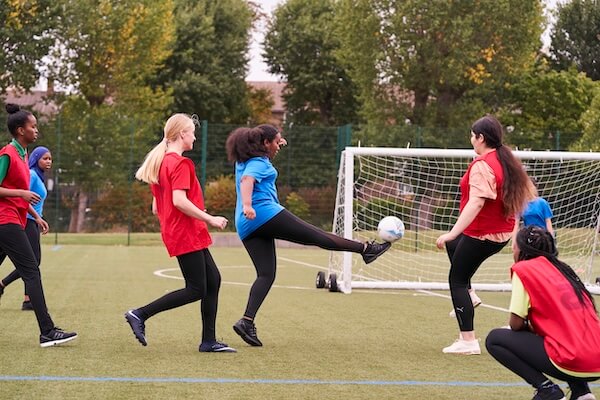
Badminton, one of the world’s most beloved racket sports, offers an array of physical benefits. However, the advantages of badminton extend far beyond fitness; it's a powerful tool for boosting mental well-being and fostering social connections. Whether you're a seasoned player or just getting started, badminton can significantly enhance your cognitive health, mood, and social life.
Why Badminton?
Cognitive Benefits
Badminton stands out as an open-skill exercise, meaning it involves constantly changing conditions and requires quick, strategic thinking. This type of dynamic physical activity is very effective at enhancing cognitive function. The rapid pace of badminton demands agility, coordination, and mental alertness, all of which contribute to maintaining a sharp mind.
Research has shown that even moderate engagement in badminton can have a profound impact on cognitive health. Playing for just 30 minutes weekly can help stave off cognitive decline—a significant concern as we age. For those who can dedicate more time, around 3 hours a week, badminton can also help manage other dementia-related risk factors, such as high blood pressure.
The sport is particularly effective in improving executive functions, which include decision-making, problem-solving, and cognitive flexibility. These improvements stem from the sport’s demands for rapid reactions and strategic planning during gameplay. Badminton also enhances visuomotor integration, the ability to coordinate vision with body movements—another key aspect of cognitive health.
Reducing the Risk of Dementia
Dementia affects nearly half a million Australians, with the numbers expected to rise as population ages. Regular physical activity, including badminton, plays a crucial role in reducing the risk of developing dementia. Badminton’s blend of physical exertion and mental engagement not only supports brain health but also helps manage modifiable risk factors for dementia, such as depression, social isolation, and hypertension.
Social Benefits
One of the standout aspects of badminton is its social nature. Whether playing singles or doubles, the sport encourages interaction, teamwork, and communication. These social interactions are vital for mental health, as they help combat feelings of loneliness and social isolation, both of which are significant risk factors for cognitive decline and depression.
Badminton clubs and community groups offer a welcoming environment where players of all ages and skill levels can come together, forming friendships and a sense of belonging. The camaraderie developed on the court often extends beyond it, leading to lasting social connections that enrich one’s life.
Mental Health and Mood Enhancement
Beyond cognitive benefits, badminton is also highly effective at boosting mental health. Engaging in moderate-intensity badminton for just 100 minutes a week can alleviate symptoms of depression. The sport’s combination of physical activity and social interaction releases endorphins—natural mood lifters—creating a positive feedback loop that enhances overall well-being.
Additionally, the focus required during a game of badminton can serve as a form of mindfulness, helping players to stay in the moment and reduce stress. This mental clarity and reduced stress can lead to better emotional balance and a more positive outlook on life.
Summary
Badminton is much more than a physical exercise—it's a holistic
activity that supports both mental and social well-being. By
playing badminton, you not only enhance your cognitive function
and reduce the risk of dementia, but you also improve your mood,
manage stress, and build meaningful social connections. Whether
you're playing in a local league or just enjoying a friendly match
with friends, badminton is an enjoyable and accessible way to
boost your overall mental and social health. So grab your racket,
find a partner, and let badminton contribute to a happier,
healthier you.






